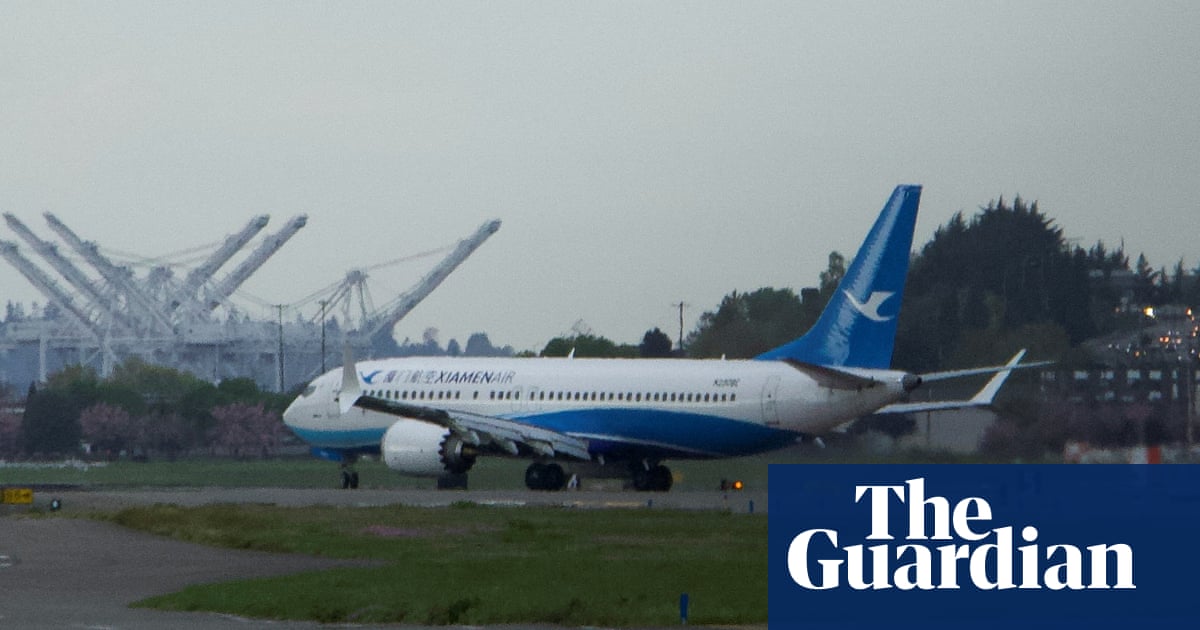The article highlights a significant development in the ongoing trade tensions between the United States and China, particularly affecting the aviation industry. The return of a Boeing 737 MAX jet intended for a Chinese airline underscores the direct impact of tariffs imposed by both nations.
Trade Tensions and Economic Implications
The incident illustrates the complexities introduced by the recent tariff hikes, with the U.S. imposing a staggering 145% tariff on Chinese imports and China retaliating with a 125% tariff on U.S. goods. Such tariffs can severely affect the profitability and feasibility of international trade deals, especially for high-value items like aircraft. The Boeing 737 MAX, valued at around $55 million, is a prime example of how these tariffs can disrupt established business practices and agreements.
Market Reactions and Stakeholder Concerns
Airline executives are reportedly reconsidering their delivery schedules due to the economic burden of the tariffs. This uncertainty could lead to a backlog of deliveries, which might further affect Boeing’s production schedules and financial performance. The lack of clear communication from Boeing and Xiamen Airlines about the decision for the jet's return raises questions about the management of these complex trade relationships.
Public Perception and Narrative Control
The article may serve to shape public perception regarding the consequences of trade policies initiated under the Trump administration. By emphasizing the tangible effects of tariffs on everyday business operations and international agreements, the article could be aiming to generate a critical view of these policies. There is an implied narrative that suggests a need for reconsideration of such aggressive trade strategies, potentially influencing public opinion against them.
Potential Manipulation and Information Control
The framing of the news may also indicate an attempt to sway public sentiment by highlighting the negative impacts of tariffs on American companies like Boeing. By focusing on the return of the aircraft and the financial implications, the article subtly encourages readers to consider the broader consequences of trade wars. The choice of language and the lack of direct commentary from involved parties can create a perception of uncertainty and concern among stakeholders.
Economic and Political Consequences
This news could have far-reaching implications for both the economy and political landscape. If trade tensions escalate, it may lead to further disruptions in international trade agreements, affecting not just aviation but multiple sectors. Politically, it could drive discussions on the effectiveness of current trade policies and their impact on American businesses, potentially influencing future elections and policy decisions.
Target Audiences and Stakeholder Reactions
The article likely resonates with business communities, policymakers, and consumers who are directly or indirectly affected by trade policies. Those involved in international trade or the aviation sector may find this information particularly relevant, as it directly affects their operations and economic outlook.
Financial Market Impact
The news could have implications for Boeing's stock performance and the broader aviation market, as investors will be closely monitoring the effects of tariffs on sales and deliveries. This situation may lead to increased volatility in stock prices for companies involved in international trade.
In summary, the article portrays a scenario where trade policies are having a direct and negative impact on international business operations, particularly in the aviation sector. It raises critical questions about the sustainability of current trade strategies and their broader implications for the economy and public sentiment.
